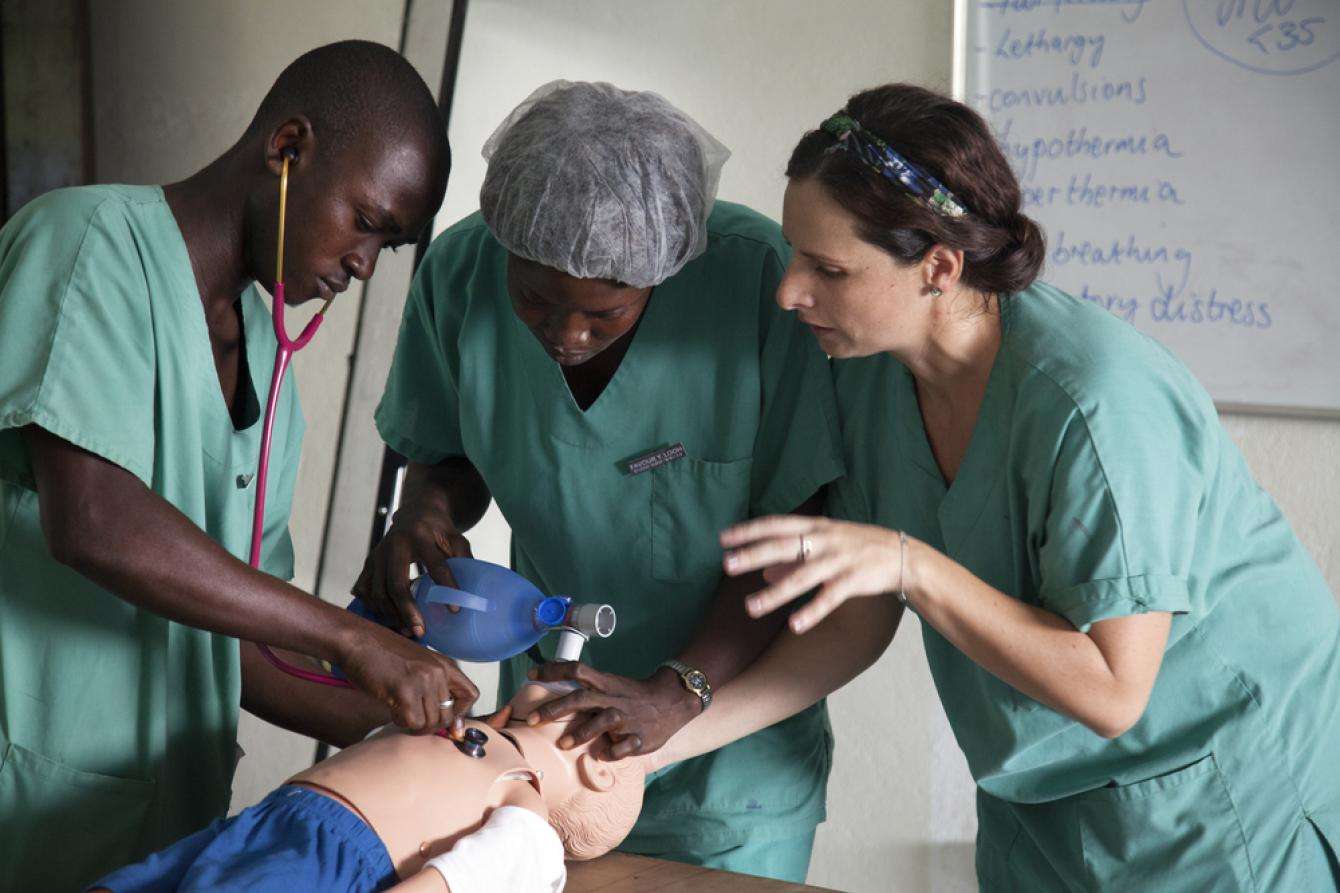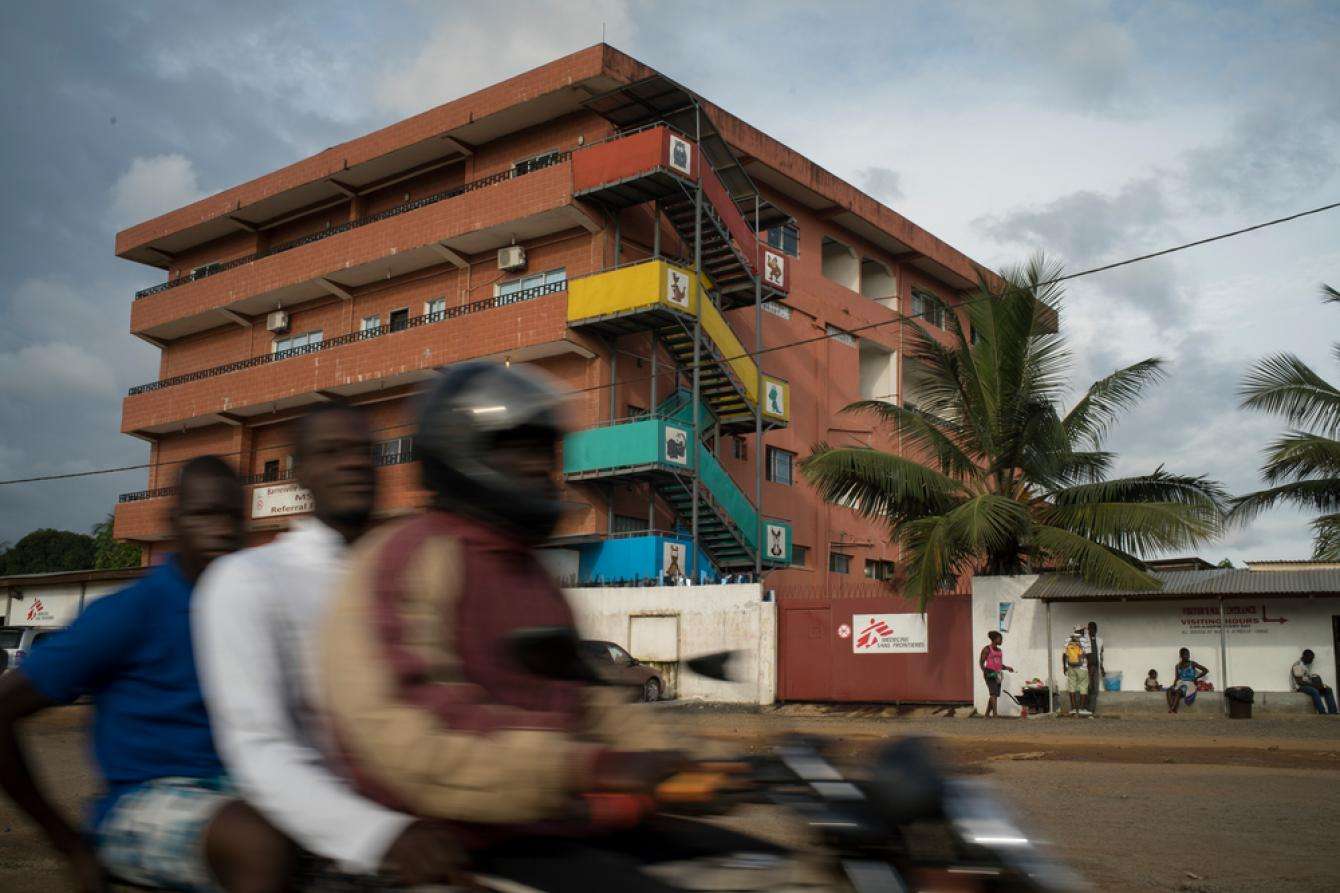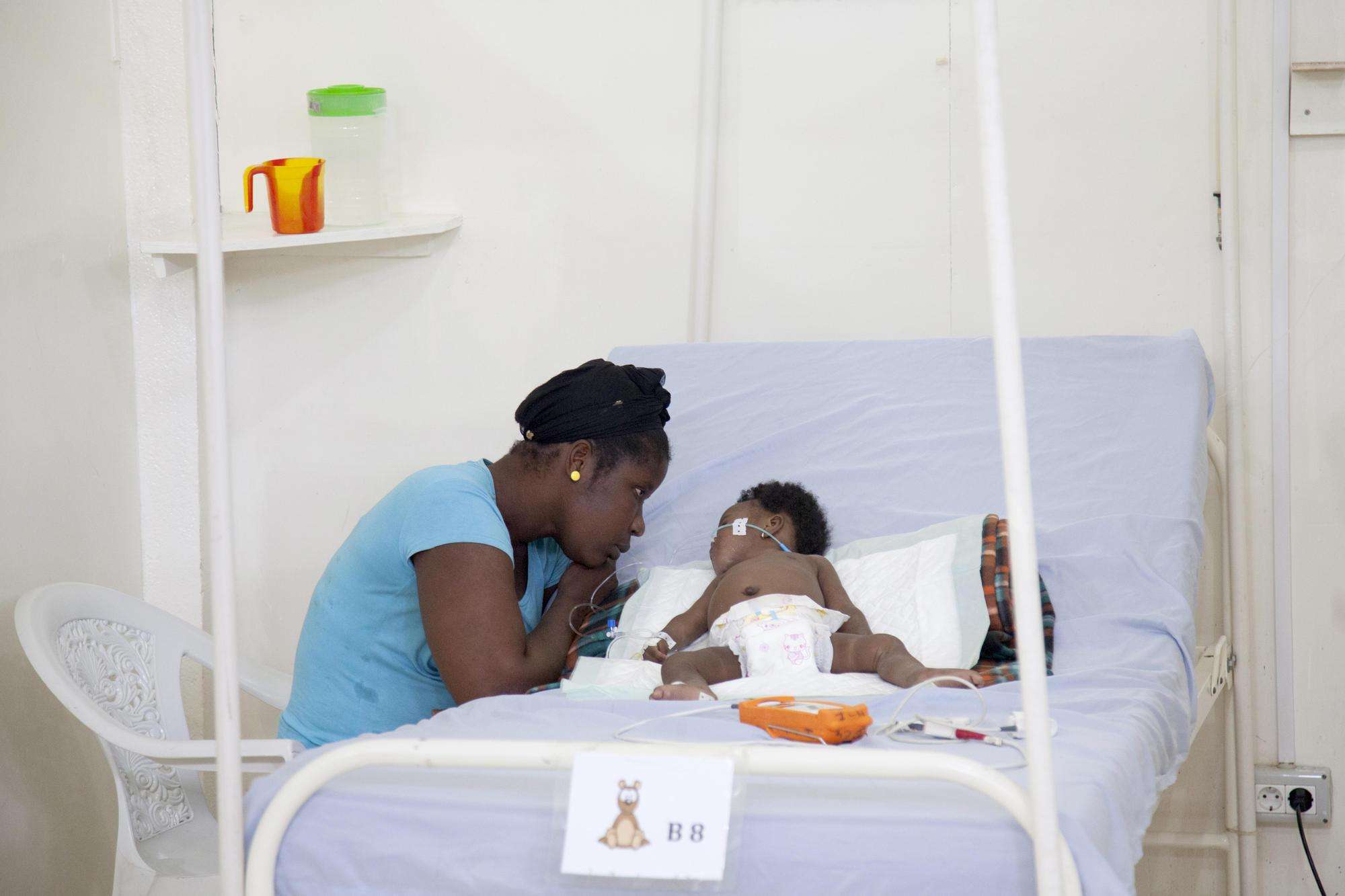Dr. Neema Kaseje had just successfully performed a complex surgery on a very sick 5-month-old baby when she found out that the baby’s mother was a nurse in another ward of the hospital. This particular operation, to treat intussusception—a painful and dangerous intestinal obstruction—meant a lot to Kaseje.
It demonstrated that after two years, the Doctors Without Borders/ Médecins Sans Frontières (MSF) pediatric surgery project in Monrovia, Liberia—the only one of its kind in the country—had gained the confidence of the community. “This was a testament to the trust in the program we had created,” Kaseje said. ”[The family] chose to come to us.” It also confirmed that the skills of the Liberian surgical staff at Bardnesville Junction Hospital had grown exponentially.
So it was especially difficult for Kaseje to learn that, after she left Liberia at the end of her assignment in March, there would be no new pediatric surgeon coming to replace her and keep the project running. Due to travel restrictions imposed to limit the spread of the COVID-19 pandemic, MSF has had to sharply curtail the movement of international staff.
This new, global pandemic is truly unprecedented, and it's creating all kinds of new challenges for MSF. While our human resources teams scramble to get staff and supplies from point A to point B, our teams in the field are working hard to continue providing lifesaving services while also protecting our patients and staff from the deadly virus. In countries like South Africa, Bangladesh, and Greece, we are shifting some of our activities so we can treat people infected by the new coronavirus and help health systems respond.
MSF’s work in Liberia has also been greatly affected. Kaseje is concerned about the impact of the surgery program’s suspension, even though she knows her Liberian colleagues are resilient and well placed to contribute to the COVID-19 response.
A Model of Care
MSF opened this much needed pediatric hospital in 2015 during the Ebola epidemic in West Africa, which devastated the health care system and killed many of the country’s medical professionals. Soon, the hospital also became a site for training nurses. A main objective for the surgery program, which was added in 2018, was to train Liberian surgical residents and nurse anesthetists in order to build the capacity for specialized pediatric care within the national public health system.
Kaseje, who was one of the program’s first pediatric surgeons in 2018, returned in 2020 to find that a lot had changed.
“It was amazing to see the extraordinary growth that had happened in just two years,” she said, “in terms of the number of cases we were doing, in terms of the capacity of the surgical team and the ancillary team, in terms of the complexity of cases that we were doing, and the acuteness of the illnesses that we were seeing.”
Whereas in 2018, MSF’s team was performing mostly elective surgeries, this time around they could treat patients with challenging emergencies, like newborns with congenital anomalies of the bowel and the rectum, babies with perforated intestines caused by typhoid disease, and children with acute appendicitis. The team had developed high-level skills, like providing intravenous hydration for newborns, with their tiny, delicate veins, and responding to respiratory failure.
“The training gives [Liberian staff] a model that they can learn from and they can emulate, because it's very difficult to do something if you've never seen how it's done,” Kaseje said. The staff in Liberia is hungry for knowledge, she said, “and they’re very, very, very committed to their patients.”

A great example is Sandra Gordon-Mai Smith, a young Liberian nurse-anesthetist with whom Kaseje first worked in 2018. Over the next two years, Smith eagerly trained with MSF’s international anesthesia providers. When Kaseje returned this year, she immediately recognized the difference. “Sandra was able to independently provide anesthesia care to all our patients, from the 5-day-old baby to the 14-year-old teenager. I mean, if my baby needed anesthesia, I would have no problem with that team doing the anesthesia care,” said Kaseje. “That's how good they've become.”
Having staff with these specialized pediatric surgery skills is essential because children are physiologically different from adults, Kaseje says. “They require age-appropriate clinical management with age-appropriate equipment, infrastructure, and supplies.” It can be very difficult—even impossible—to treat a small child without the right equipment and knowledge of how to use it. Because few Liberian health care workers have had the opportunity to develop these skills, MSF’s internationally supported project has been a valuable and unique resource.
Legacy of Ebola
As COVID-19 starts to spread in Liberia—as of April 12, there were 48 confirmed cases and five deaths, and a state of emergency has been called—it brings up memories of the West Africa Ebola outbreak of 2014-2015. Ebola devastated Liberia, infecting an estimated 10,678 people and killing 4,810 and wreaking havoc on a country that had only recently emerged from two civil wars. Many of the country’s health care workers died during the outbreak, and the health care system has never fully recovered.
“People here are still traumatized from the whole Ebola experience,” Kaseje said. “It is still very, very present. And I think that’s why the overriding emotions that I saw at the start of the COVID-19 outbreak were fear and nervousness.”
The Liberians she spoke with were taking the pandemic extremely seriously, she said, more seriously than many of the Europeans she encountered when she landed back home in Geneva.
“Compared to other countries that have never experienced Ebola, I think Liberia has a head start when it comes to handwashing, and also when it comes to containment measures,” she says. “There are handwashing stations everywhere, temperature checks everywhere.” After the first case of COVID-19 was confirmed in the country, many more handwashing stations started to appear in public places like schools, hotels, and shops.
Liberia’s President George Weah announced a nationwide quarantine starting Saturday, April 11, which prohibits movement between counties and across borders. In several parts of the country, including Monrovia, residents must stay inside their homes for two weeks, with exceptions for food shopping, health care, and essential work.

Wider impacts of COVID-19
What makes people especially fearful, Kaseje said, is that even without COVID-19, the health system struggles to take care of those who need help. “There are endemic diseases, HIV/AIDS, tuberculosis. Malaria was just about to start, because the rainy season came a bit early this year,” she said. “We were seeing more malnutrition cases.” And, no one knows how COVID-19 will react with these other diseases.
MSF has been forced to suspend pediatric surgeries in Liberia temporarily and now must refer patients to other facilities that don’t specialize in treating young children. Our mental health program in Monrovia has responded to the pandemic by changing the model of care in order to reduce the movements of staff and patients.
Our teams are also working diligently to support the Liberian Ministry of Health’s efforts to prevent and treat COVID-19. We’re donating medical supplies and providing technical expertise to optimize patient flow and quality of care at the COVID-19 treatment center, and raising public awareness of the disease and how to prevent it. In the capital, teams have started distributing soap to some of the most vulnerable communities to increase handwashing.
Kaseje is concerned about the pause to the pediatric surgery project that she helped build, but hopes the team will be able to pick up where they left off.
Her ambition for the future of the project—once it’s able to resume—is that MSF will build on the success of the pediatric anesthesia training program and start to train local surgeons to be able to operate on children. During her last assignment, Kaseje mentored a Liberian medical intern for a week. “He said that in that one week with me he learned more than he had learned through his whole surgical rotation in medical school,” she said. He told her that he now wants to be a pediatric surgeon.
“The talent is there,” she said. “And I think if we give even just a little bit, even if they had one month of rotations with us, they would get the basics of how to care for a child or a baby who needs surgery. And that will have a huge impact for the country.”




